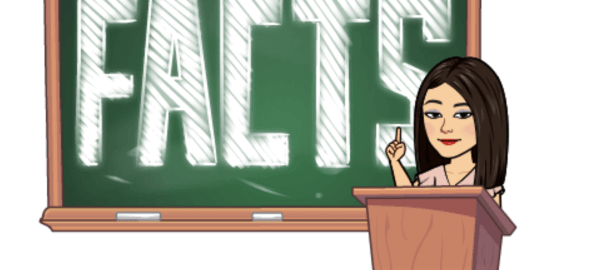Part B: Reflection
I started working as a teacher librarian in 2020 and have since experienced two very different leadership styles. The first leadership style was similar to Irresponsible leadership (IL) as described by Oplatka (2017), operating at times without a moral compass, serving their own interests, and creating conflict between departments and teams. We were oblivious to the level of toxicity, and it felt like being in a pressure cooker. I had thought of leaving, but the students were the highlight of the role. I persevered but endured a work injury, stress and conflict. The worst part was being constantly micromanaged, with the manager not understanding how school libraries operate, undermining my expertise as a TL.
Thankfully a leadership change at the end of last year introduced servant leadership; the characteristics of empathy, the commitment to the growth of people, and community-building being essential elements of Catholic education (Schafer, 2005). Upon reflection, there are many lessons that I gained regarding the type of leader that I aim to be. Role modelling a strong work ethic, passion for the role, fairness, respect and innovation has resulted in a more efficient library team.
TLs are uniquely positioned to be school leaders because of their knowledge, skills and experiences (Schultz-Jones & Oberg, 2019) particularly as they are literacy, information and curriculum specialists (Merga, 2019).
A successful TL establishes the direction, motivates and inspires staff to achieve change (Caldwell, 2014). I am one of few teachers at the College who teach across K-12, putting me in a unique position to assess the development of 21st century skills of students. I listen to staff concerns, brainstorm ways that TLs and the school library can be part of the solution to overcome issues and challenges (Cellucci & Harland, 2022). I have come to realise that I have been leading from the middle, leading by example using relationships built on mutual trust to create change (Gottlieb, 2012).
I’d underestimated the impact I could have as a TL as an information literacy and digital literacy change agent, initiating and implementing programs (Lau, 2006). TLs can play a major role in preparing students for the future world of work, arming them with 21st century skills to be critical and creative-thinkers, communicators and collaborators. I am excited to embrace the IFF within the library program consistent standards to support teaching and learning across all stages (Grimmett, 2021). The learning commons model is transforming school libraries, with the library becoming the physical and virtual learning centre of the school (Kapanka, 2022). There is further scope to add to the library webpage, creating a primary and secondary webpage due to differing demands and abilities. Allowing the TL to act as a conduit and connector within a larger learning network (Oddone,
It is disconcerting to be told that school libraries won’t exist anymore, especially when it happened in front of all staff by the head of Real schools at a restorative behaviour professional development session. There is a long way to go in educating teachers and students about what school libraries and teacher librarians offer. Advocacy efforts fall short in this respect, and I am unsure what it will take to change these negative perceptions of school libraries and TLs.
Building and nurturing professional relationships improves the quality of work and increases job satisfaction (Gino et al., 2016) especially vital for teacher librarians who often work on their own in schools (Galimi, 2023). Once I’ve completed the course, engaging in professional development and professional networks will be vital for keeping abreast of new developments and extending my practice.
References
Caldwell, E. B. J. (2014, April 1). Leadership authority for school innovation. Educational Transformations. Sydney Principal Credential Conference, Novotel Brighton-le-Sands. http://educationaltransformations.com.au/wp-content/uploads/Caldwell-Sydney-Keynote-on-Innovation.pdf
Cellucci, A., & Harland, P. (2022). Do you know your administrator’s priorities for the school library? Knowledge Quest, 50(3), 44–49.
Galimi, J. (2023, March 4). Learn to Love Networking. Interact 2. https://interact2.csu.edu.au/webapps/discussionboard/do/message?action=list_messages&course_id=_66273_1&nav=discussion_board_entry&conf_id=_136247_1&forum_id=_307622_1&message_id=_4359676_1
Gino, F., Kouchaki, M., & Casciaro, T. (2016, May). Learn to Love Networking. Harvard Business Review. https://hbr.org/2016/05/learn-to-love-networking
Gottlieb, H. (2012, October 30). Leading from the middle: Bringing out the best in everyone. Creating the Future. https://creatingthefuture.org/leading-from-the-middle-bringing-out-the-best-in-everyone/
Grimmett, C. (2021). Trialling the information fluency framework: A report from the pilot schools. Scan: The Journal For Educators, 40(9), 10–14. https://doi.org/10.3316/INFORMIT.121425406126007
Kapanka, H. (2022). School library media specialists: An evolving profession in a pandemic. IFLA Journal, 48(1), 41–49. https://doi.org/10.1177/03400352211011494
Lau, J. (2006). Guidelines on Information Literacy for Lifelong Learning. https://repository.ifla.org/handle/123456789/193
Merga, M. K. (2019). How do librarians in schools support struggling readers? English in Education, 53(2), 145–160. https://doi.org/10.1080/04250494.2018.1558030
Oddone, K. (2022). Making the shift: Guiding teachers into the exciting and challenging role of teacher librarian. Access (Online), 36(4), 15–19.
Oplatka, I. (2017). “Irresponsible leadership” and unethical practices in schools: A conceptual framework of the “dark side” of educational leadership. In A. H. Normore & J. S. Brooks (Eds.), The dark side of leadership: Identifying and overcoming unethical practice in organizations (First edition). Emerald Group Publishing Limited.
Schafer, D. F. (2005). Leadership Role Expectations and Relationships of Principals and Pastors in Catholic Parochial Elementary Schools: Part 2. Journal of Catholic Education, 9(2). https://doi.org/10.15365/joce.0902092013
Schultz-Jones, B. A., & Oberg, D. (Eds.). (2019). Global action on school library education and training. De Gruyter Saur.
